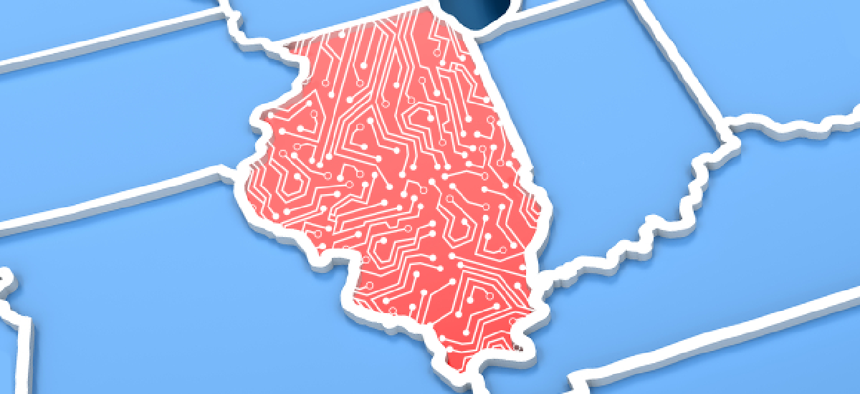Illinois maps its smart state transformation


Connecting state and local government leaders
The state plans to use its information and communications technology to enhance livability, workability and sustainability in its cities, towns, rural areas and state agencies.
Illinois aims to be the first “smart state” in the nation.
At a recent two-day Smart State Roadmap Workshop, officials outlined how the state can use its information and communications technology to enhance livability, workability and sustainability in its cities, towns, rural areas and state agencies.
The Dec. 5 and 6 workshop drew more than 50 participants, including state agency leads, city officials, businesses, universities, national labs, non-profits and Illinois Deputy Governor Trey Childress. Participants discussed improving the delivery of government services, applying sensors and Internet of Things technologies to buildings and streetlights and enhancing mobile citizen engagement. The state also is looking to better apply smart-city standards and build a digital portal that can help facilitate a business-friendly state.
Other priorities include developing a more efficient procurement platform, streamlining city and state purchasing, reviewing policies that inhibit the implementation of new smart technologies and improving sustainability in its cities, towns and state agencies. The state also aims to keep enterprise security and privacy at the front of its efforts as it works to meet its goals.
The workshop builds on Illinois Smart State vision created by CIO Hardik Bhatt at the beginning of the year with the IDC Government Insights Community. It identified three roles the state must play in order to become a smart state:
- Improve the efficiency and effectiveness of state government.
- Support the development of smart cities.
- Connect multiple localized smart city initiatives to create a smart region.
The vision also outlined the state’s plan to move forward by looking to private, academic and financial sector partners as advisers, finding high-value, low-effort projects to get off the ground and building an executable strategy.
“Illinois’ smart state initiative is unique in that it involves collaboration among state agencies, cities, universities and industry partners,” said Sue Gander, the director of the National Governors Association’s Environment, Energy and Transportation Division. “The Illinois team set a strong example for other states to follow.”
The December workshop follows on the success of the first Smarter Illinois event held in April, where participants discussed how to build citizen-centered solutions to jumpstart the state’s smart technology transformation.




